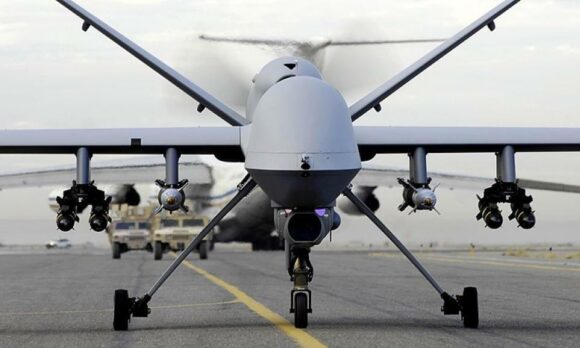
Artificial Intelligence Safety and Stability
Nations around the world are investing in artificial intelligence (AI) to improve their military, intelligence, and other national security capabilities. Yet AI technology, at present, has significant safety and security vulnerabilities. AI systems could fail, potentially in unexpected ways, due to a variety of causes. Moreover, the interactive nature of military competition means that one nation’s actions affect others, including in ways that may be detrimental to mutual stability. There is an urgent need to explore actions that can mitigate these risks, such as improved processes for AI assurance, norms and best practices for responsible AI adoption, and confidence-building measures that improve stability among all nations.
The Center for a New American Security (CNAS) Artificial Intelligence Safety and Stability project aims to better understand AI risks and specific steps that can be taken to improve AI safety and stability in national security applications. Major lines of effort include:
- Compute Governance: Compute is emerging as a key lever for AI governance as a consequence of technological and geopolitical trends. Cutting-edge machine learning systems continue to rely on ever-larger models, datasets, and compute training. This project seeks to better understand and shape opportunities for compute governance, including identifying which government policies, private sector actions, and/or technological developments would increase or decrease the controllability of compute in the future.
- Mitigating Catastrophic AI Failures: As AI becomes integrated into more industries, it will inevitably be used in high-consequence applications where failures could have significant ramifications. This project focuses on anticipating, preventing, and mitigating catastrophic AI failures, to include both accidents and unauthorized use.
- U.S. Department of Defense AI Test and Evaluation: Military AI systems must be reliable, secure, and trusted by end-users. Mistakes on the battlefield can have dire consequences. How can DoD create test, evaluation, verification, and validation (TEVV) practices that are appropriate for AI and machine learning systems? What new DoD standards and metrics are needed for AI? This project focuses primarily on direct engagement with the defense community, including military and civilian DoD officials, scientists at DoD research labs, and the defense industry.
- Understanding Chinese Decision-making on AI: U.S. policymakers are highly concerned about Chinese advances in AI, especially by China’s military, the People’s Liberation Army. Yet there remains a significant gap in U.S. understanding of how China might employ AI for military purposes. This project aims to increase U.S. policymakers’ understanding about how Chinese developments in AI might affect stability between the United States and China and develop recommendations for mitigating stability risks.
- Understanding Russian Decision-making on AI: Russia has demonstrated a high willingness to implement automation and autonomy within its military forces, often despite shortfalls in performance. This project aims to increase U.S. policymakers’ understanding about Russian decision-making on AI and stability, with an eye towards better understanding how Russia might employ AI in its military forces and how such uses might affect U.S.-Russian stability.
This cross-program effort includes the CNAS Technology and National Security, Defense, Indo-Pacific Security, Transatlantic Security, and Energy, Economics, and Security programs. CNAS experts will share their findings in public reports and policy briefs with recommendations for policymakers.
This project is made possible with the generous support of Open Philanthropy.
Learn More:
Further Reading:
To Avoid AI Catastrophes, We Must Think Smaller
These incidents are not theoretical, nor are they projections of long-term dangers; rather, these AI tools are already presenting tangible threats to individual health and wel...
Unknown: Killer Robots
What happens when a machine makes life-or-death decisions? A documentary from Netflix featuring analysis and commentary from Paul Scharre, Stacie Pettyjohn, and Robert Work ex...
Making Unilateral Norms for Military AI Multilateral
Without significant effort from the U.S., the political declaration could easily die on the vine, and with it a structure for building AI technology responsibly....
Hijacked AI Assistants Can Now Hack Your Data
Early adopters of powerful new AI tools should recognize that they are subjects of a large-scale experiment with a new kind of cyberattack....
To Stay Ahead of China in AI, the U.S. Needs to Work with China
An AI gold rush is underway in the private sector in the wake of ChatGPT, but the geopolitical stakes are even greater. The United States and China are vying for global leader...
AI's Inhuman Advantage
AI agents’ victories demonstrate that machines can dramatically outperform humans in command and control, a potential major advantage in war....
America Can Win the AI Race
If the United States wants to win the AI competition, it must approach Beijing carefully and construct its own initiatives thoughtfully....
U.S. and China Can Show World Leadership by Safeguarding Military AI
The US and China must move beyond unilateral statements and begin developing shared confidence-building measures to manage the risks of military AI competition....
AI Nuclear Weapons Catastrophe Can Be Avoided
AI-enabled nuclear weapons are particularly concerning due to their civilization-destroying nature....
Generative AI Could Be an Authoritarian Breakthrough in Brainwashing
The U.S. and allies should also invest aggressively into counter-propaganda capabilities that can mitigate the coming waves of generative AI propaganda — both at home and with...
How to counter China’s scary use of AI tech
In the face of these AI threats, democratic governments and societies need to work to establish global norms for lawful, appropriate and ethical uses of technologies like faci...
NOTEWORTHY: DoD Autonomous Weapons Policy
In this CNAS Noteworthy, Vice President and Director of Studies Paul Scharre breaks down the new Directive and what it means for the U.S. military’s approach to lethal autonom...
How ‘Killer Robots’ Can Help Us Learn from Mistakes Made in AI Policies
While recent events may have sparked a public outcry over the dangers of “killer robots,” we should not lose sight of the danger that poor processes create when deploying AI s...
Decoupling Wastes U.S. Leverage on China
The ability to deny China access to advanced chips is a powerful advantage whose value is growing exponentially...
Putting Principles into Practice: How the U.S. Defense Department is Approaching AI
While the application of RAI is still at a nascent stage, the DoD’s continued messaging and prioritization of safe and ethical AI is important....
Debunking the AI Arms Race Theory
In 2015, a group of prominent AI and robotics researchers signed an open letter warning of the dangers of autonomous weapons. “The key question for humanity today,” they wrote...
AI and International Stability: Risks and Confidence-Building Measures
Exploring the potential use of confidence-building measures built around the shared interests that all countries have in preventing inadvertent war....
CNAS Experts
-
Paul Scharre
Executive Vice President and Director of Studies
-
Stacie Pettyjohn
Senior Fellow and Director, Defense Program
-
Andrea Kendall-Taylor
Senior Fellow and Director, Transatlantic Security Program
-
Emily Kilcrease
Senior Fellow and Director, Energy, Economics and Security Program
-
Jacob Stokes
Senior Fellow, Indo-Pacific Security Program
-
Bill Drexel
Fellow, Technology and National Security Program
-
Tim Fist
Senior Adjunct Fellow, Technology and National Security Program
-
Josh Wallin
Fellow, Defense Program
-
Michael Depp
Research Associate, AI Safety and Stability Project
-
Noah Greene
Research Assistant, AI Safety and Stability Project
-
Caleb Withers
Research Assistant, Technology and National Security Program


























